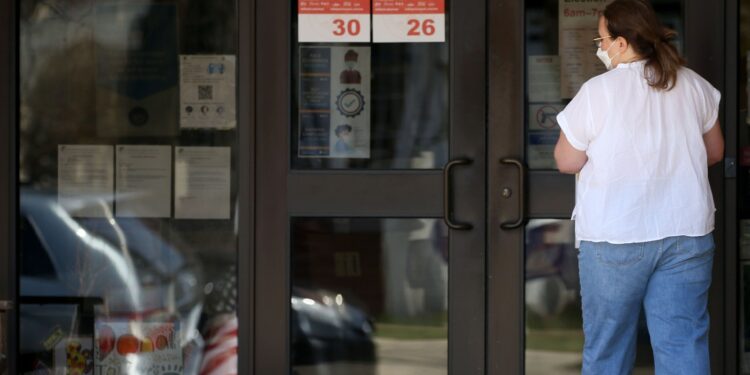
Voters in Oak Park will have an opportunity Nov. 4 to change the way village officials are elected.
A grassroots effort has placed a binding referendum on the ballot asking Oak Park residents if they want to switch to ranked choice voting for village elections. If approved, Oak Park would become the second municipality in Illinois to adopt ranked choice voting following Evanston which made the switch to ranked choice voting in 2022. The first election using ranked choice voting in Evanston will take place next year. If the measure passes in Oak Park the new system will first be used in the April 2027 municipal election.
In ranked choice voting, voters rank candidates in order of preference rather than voting for one candidate, or in the case of the Village Board, three candidates. A candidate receiving over 50% of first choice ballots would be elected. If no candidate receives a majority, the candidate with the fewest first choice votes is eliminated and those ballots are reallocated to voters’ second choice in a process that repeats until a candidate receives a majority.
Advocates of ranked choice voting say the system assures that winning candidates have wide support, discourages negative campaigning, provides more choice for voters, encourages more candidates to run and allows voters to vote for their favorite candidate without the fear of wasting their vote in multiple candidate fields.
“It’s a better way,” said Peggy Kell, the voter services chair of League of Women Voters of Oak Park & River Forest which supports ranked choice voting. “If their first choice didn’t get in, at least their second choice would get in.”
Advocates of ranked choice voting initially asked the Oak Park Village Board to place a referendum on the ballot, but at an October 10, 2023 meeting the Village Board declined to do so, citing a desire to wait for a report from a state task force created to study ranked choice voting.
After that, advocates of ranked choice voting, aided by the organization FairVote Illinois, took matters into their own hands. Volunteers went to events such as the Oak Park Farmers Market and Thursday Night Out to gather signatures on petitions calling for a binding referendum to be placed on the ballot. They needed 1,900 valid petition signatures to put a binding referendum on the ballot and on August 5 they turned in 3,254 signatures to the Oak Park Village Clerk.
“We got most of them (signatures) at events that draw large numbers of Oak Park voters,” said longtime Oak Park resident Bruce Lehman, who was one of approximately 20 volunteers who gathered the signatures.
Lehman said ranked choice voting is a fairer system and will produce winning candidates more in line with wishes of the majority of voters in Oak Park.
He pointed to the 2019 Village Board election, which had 11 candidates running for just three seats, as a contest that would have benefited from ranked choice voting.
Nationally, ranked choice voting is employed in more than 50 cities, including New York City, Minneapolis and Cambridge, Massachusetts, in 14 states according to the website of the Campaign Legal Center. It is also used in Maine for statewide primary elections and general elections to the U.S. House of Representatives and Senate. Ranked choice voting is also used in statewide elections in Alaska.
Bob Skolnik is a freelance reporter for Pioneer Press.







